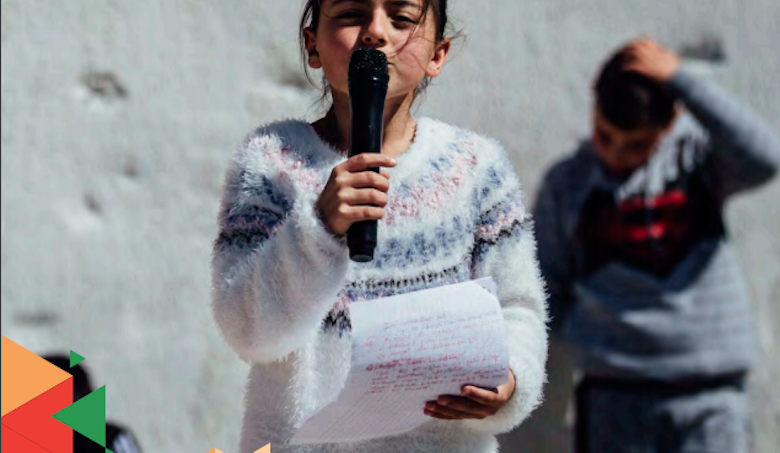Children have the right to be heard. But do adults listen?
Children like to think along about problems and they want to be heard. However, their participation must be encouraged, in an environment that supports their empowerment. When children participate, final measures become more effective. Yet the biggest obstacle to active child participation remains the adult.
Measures become more effective if children get involved
Children have the right to participate in decisions affecting their lives and to expect adults including decision-makers to take into account their views. That is, in a nutshell, the message in the latest policy report from Joining Forces, the alliance of the six largest international children's rights organizations, including Terre des Hommes.
Since the adoption of the Convention on the Rights of the Child in 1989, the number of international fora and platforms such as children’s parlements and child clubs, has grown steadily.
There are many success stories on child participation. Indonesia, with 30 million children and adolescents among its population, is vulnerable to natural disasters such as floodings, landslides and tsunamis. Boys and girls mapped the hazards in their environment and presented innovative solutions to policymakers.
In Bangladesh children aged 12-17 mobilised support against child marriage. Thanks to their efforts, 72 child marriages were prevented last year. In Mongolia, children played an essential role in the course of the government adopting legislation to ban corporal punishment of children.
However, in many instances adults still see children as too inexperienced or immature to participate and they continue to deny or inhibit children’s access to decision-making processes. In their view, children lack competence and judgment, their parents knows best, it can lead to excessive demands, bad behaviour, disrespect for elders or harm.. In a survey among 2,500 children in 53 countries, the minors repeatedly reported that adults are the major obstacle in the realization of their civil rights. In another survey of 5,500 children aged 10-12 from 2019, half of the children found that adults do not listen when it comes to things that affect them.
Whereas when children do participate, this benefits the measure or final decision and allows it to be more effective.
"Being young is a competence," said Kate Gilmore, Deputy High Representative for Human Rights at the UN.
See below for the entire report Children's Right To Be Heard: We're Talking; Are You Listening?

